I am editing JSP files which are residing directly inside tomcat/webapps/myapp/WEB-INF, but to see the changes, I have to restart the server. As far as I know, JSP changes don't require you to restart the server. The only configuration I found which is related to automatic reloading is reloadable = "true"
Set to true if you want Catalina to monitor classes in /WEB-INF/classes/ and /WEB-INF/lib for changes, and automatically reload the web application if a change is detected.
I used this attribute in the context.xml, but still the problem persists. What could be the other possible reason of not detecting changes in JSP files without restarting?
@Bozho:
This is the excerpt from web.xml. Do I need to change something?
<servlet>
<servlet-name>jsp</servlet-name>
<servlet-class>org.apache.jasper.servlet.JspServlet</servlet-class>
<init-param>
<param-name>fork</param-name>
<param-value>false</param-value>
</init-param>
<init-param>
<param-name>xpoweredBy</param-name>
<param-value>false</param-value>
</init-param>
<load-on-startup>3</load-on-startup>
</servlet>

